Share this
7 Conditions Treatable by Corrective Jaw Surgery in Singapore
on September 22, 2014
 Corrective jaw surgery, or orthognathic surgery, is a treatment process that includes both orthodontic and surgical treatment. It is used to treat adults who suffer with issues related to jaws that are poorly aligned, improperly positioned or mis-matched in size. These jaw discrepancies can cause a number of conditions that affect oral health and function, speech, breathing, overall health and appearance, as well as a patient's emotional health and quality of life. Here we'll discuss 7 conditions that can be treated with corrective jaw surgery in Singapore.
Corrective jaw surgery, or orthognathic surgery, is a treatment process that includes both orthodontic and surgical treatment. It is used to treat adults who suffer with issues related to jaws that are poorly aligned, improperly positioned or mis-matched in size. These jaw discrepancies can cause a number of conditions that affect oral health and function, speech, breathing, overall health and appearance, as well as a patient's emotional health and quality of life. Here we'll discuss 7 conditions that can be treated with corrective jaw surgery in Singapore.
 Skeletal Overbite – A condition in which the upper jaw extends further than the lower one, causing front teeth of the upper jaw to overlap lower ones and rear teeth to fail to meet properly. Depending upon the severity of a skeletal overbite, it can cause poor chewing ability, speech problems, damage to soft tissues in the mouth and excessive tooth wear.
Skeletal Overbite – A condition in which the upper jaw extends further than the lower one, causing front teeth of the upper jaw to overlap lower ones and rear teeth to fail to meet properly. Depending upon the severity of a skeletal overbite, it can cause poor chewing ability, speech problems, damage to soft tissues in the mouth and excessive tooth wear.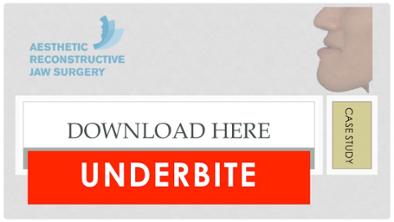 Skeletal Underbite – This condition is characterized by a lower jaw that extends beyond the upper one, causing lower front teeth to overlap upper ones, and poor alignment of rear teeth. This condition may also interfere with a patient's ability to chew efficiently and speak clearly, and can cause damage to teeth and soft tissues.
Skeletal Underbite – This condition is characterized by a lower jaw that extends beyond the upper one, causing lower front teeth to overlap upper ones, and poor alignment of rear teeth. This condition may also interfere with a patient's ability to chew efficiently and speak clearly, and can cause damage to teeth and soft tissues.- Skeletal Cross Bite – This type of malocclusion is characterized by teeth – front, rear or both – that do not meet properly, with teeth in one jaw resting to the right or left of their opposing teeth when the mouth is closed. Patients who suffer cross bite can have difficulty biting and chewing, may have uneven tooth wear, may suffer tooth loosening or loss due to uneven pressure, and can have issues with speech clarity.
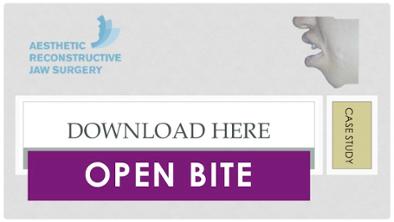 Skeletal Open Bite – An open bite is a malocclusion in which either the front teeth or rear ones are not able to meet, leaving a gap between them. At the front of the mouth, open bite interferes with biting efficiency, while at the back of the mouth, it leads to poor chewing ability.
Skeletal Open Bite – An open bite is a malocclusion in which either the front teeth or rear ones are not able to meet, leaving a gap between them. At the front of the mouth, open bite interferes with biting efficiency, while at the back of the mouth, it leads to poor chewing ability.- Temporomandibular joint (TMJ) Disorders – Skeletal malocclusions can cause temporomandibular joint disorders, which are conditions that cause chronic pain and dysfunction in the jaw joint and/or the muscles that control it.
- Sleep Apnea And Other Breathing Problems – Jaw discrepancies can cause or contribute to breathing difficulties, such as obstructive sleep apnea and airway defects, among others, that can often be relieved or improved via corrective jaw surgery.
- Aesthetic Issues Related to Jaw Discrepancies – Misaligned or mismatched jaws often result in aesthetic issues, some severe enough to cause significant facial disfigurement, such as severely recessed chins, elongated lower jaws, inability to close the mouth, and protruding teeth, among others. These issues can take a substantial toll on a person's quality of life, affecting self-esteem, self-confidence and emotional health, which, in turn, can affect social and professional success.
If you're suffering with problems related to mismatched or misaligned jaws, whether they are functional issues or aesthetic ones, or more commonly, some combination of both, getting appropriate treatment is important to preventing both short and long term complications. A consultation with a Singapore oral and maxillofacial surgeon can help you decide whether or not corrective jaw surgery is the most appropriate treatment for you.
Share this
- Jaw Surgery (93)
- Dental Implants Singapore (90)
- Orthognathic Surgery (48)
- Replacing Missing Teeth (26)
- Missing Teeth Options (23)
- Underbite (23)
- Bone Grafting (21)
- Costs (18)
- Facial Aesthetics (18)
- Aesthetics (17)
- dental implants (16)
- corrective jaw surgery (15)
- BOTOX (11)
- Dermal Fillers (11)
- Wisdom teeth (10)
- Fixed Implant Dentures (8)
- Loose Dentures Singapore (6)
- Medisave (6)
- sleep apnea (6)
- Braces (5)
- Dental Pain (5)
- Dentures in Singapore (5)
- Loose Teeth (5)
- Tooth Extraction (5)
- jaw deformities (5)
- bimax (4)
- bone graft (4)
- maxillomandibular advancement (4)
- all-on-4 (3)
- bimaxillary protrusion (3)
- chin implant (3)
- facial asymmetry (3)
- full mouth dental implants (3)
- genioplasty (3)
- immediate implant (3)
- removal of an integrated dental implant (3)
- third molars (3)
- wisdom tooth surgery (3)
- My Dentures Don't Fit (2)
- VME (2)
- bone graft healing (2)
- distraction osteogenesis (2)
- medical tourism (2)
- obstructive sleep apnea (2)
- orthodontics (2)
- plastic surgery (2)
- CT guided dental implants (1)
- Double jaw surgery (1)
- Invisalign (1)
- Periodontal Disease (1)
- Permanent Dentures Singapore (1)
- before and after photos (1)
- facial trauma (1)
- fractured dental implant (1)
- oral appliance therapy (1)
- root canal treatment (1)
- veneers (1)
- vertical maxillary excess (1)
- September 2019 (2)
- July 2019 (2)
- May 2019 (2)
- August 2018 (1)
- October 2017 (1)
- September 2017 (2)
- August 2017 (1)
- June 2017 (2)
- May 2017 (4)
- April 2017 (1)
- March 2017 (1)
- February 2017 (3)
- January 2017 (3)
- December 2016 (1)
- November 2016 (2)
- October 2016 (4)
- September 2016 (9)
- August 2016 (5)
- July 2016 (11)
- June 2016 (14)
- May 2016 (6)
- April 2016 (2)
- March 2016 (1)
- January 2016 (7)
- December 2015 (10)
- November 2015 (4)
- October 2015 (9)
- September 2015 (7)
- August 2015 (1)
- July 2015 (6)
- June 2015 (3)
- May 2015 (7)
- April 2015 (5)
- March 2015 (8)
- January 2015 (5)
- December 2014 (7)
- November 2014 (7)
- October 2014 (6)
- September 2014 (8)
- August 2014 (5)
- July 2014 (7)
- June 2014 (8)
- May 2014 (9)
- April 2014 (10)
- March 2014 (6)
- February 2014 (8)
- January 2014 (3)
Subscribe by email
Email subscription

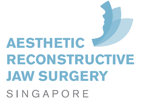
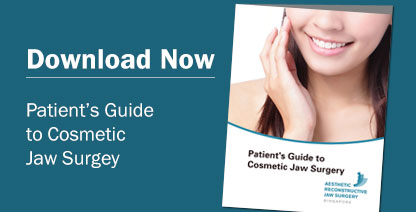
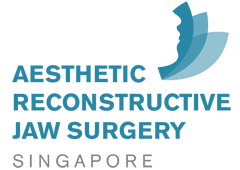
No Comments Yet
Let us know what you think